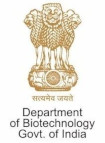The PP2A-like phosphatase Ppg1 mediates assembly of the Far complex to balance gluconeogenic outputs and enables adaptation to glucose depletion.
| Title | The PP2A-like phosphatase Ppg1 mediates assembly of the Far complex to balance gluconeogenic outputs and enables adaptation to glucose depletion. |
| Publication Type | Journal Article |
| Year of Publication | 2024 |
| Authors | Niphadkar S, Karinje L, Laxman S |
| Journal | PLoS Genet |
| Volume | 20 |
| Issue | 3 |
| Pagination | e1011202 |
| Date Published | 2024 Mar |
| ISSN | 1553-7404 |
| Keywords | Glucose, Phosphorylation, Protein Phosphatase 2, Saccharomyces cerevisiae, Saccharomyces cerevisiae Proteins, Signal Transduction |
| Abstract | To sustain growth in changing nutrient conditions, cells reorganize outputs of metabolic networks and appropriately reallocate resources. Signaling by reversible protein phosphorylation can control such metabolic adaptations. In contrast to kinases, the functions of phosphatases that enable metabolic adaptation as glucose depletes are poorly studied. Using a Saccharomyces cerevisiae deletion screen, we identified the PP2A-like phosphatase Ppg1 as required for appropriate carbon allocations towards gluconeogenic outputs-trehalose, glycogen, UDP-glucose, UDP-GlcNAc-after glucose depletion. This Ppg1 function is mediated via regulation of the assembly of the Far complex-a multi-subunit complex that tethers to the ER and mitochondrial outer membranes forming localized signaling hubs. The Far complex assembly is Ppg1 catalytic activity-dependent. Ppg1 regulates the phosphorylation status of multiple ser/thr residues on Far11 to enable the proper assembly of the Far complex. The assembled Far complex is required to maintain gluconeogenic outputs after glucose depletion. Glucose in turn regulates Far complex amounts. This Ppg1-mediated Far complex assembly, and Ppg1-Far complex dependent control of gluconeogenic outputs enables adaptive growth under glucose depletion. Our study illustrates how protein dephosphorylation is required for the assembly of a multi-protein scaffold present in localized cytosolic pools, to thereby alter gluconeogenic flux and enable cells to metabolically adapt to nutrient fluctuations. |
| DOI | 10.1371/journal.pgen.1011202 |
| Alternate Journal | PLoS Genet |
| PubMed ID | 38452140 |
| PubMed Central ID | PMC10950219 |
| Grant List | IA/S/21/2/505922 / WTDBT_ / DBT-Wellcome Trust India Alliance / India |

